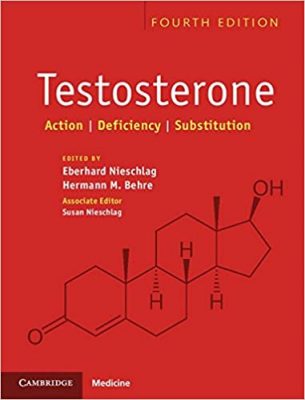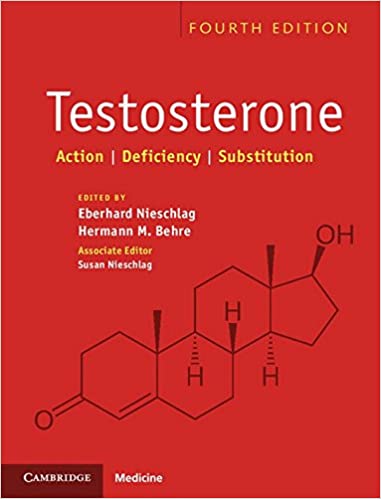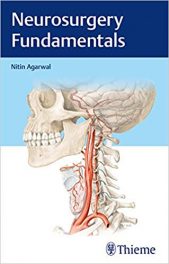 Editors: Eberhard Nieschlag and Hermann M. Behre
Editors: Eberhard Nieschlag and Hermann M. Behre
Associate Editor: Susan Nieeschlag
Publisher: Cambridge University Press – 569 pages
Book Review by: Nano Khilnani
Testosterone is the main or primary sex hormone in men. It plays a key role in developing reproductive tissues for organs such as the testes and the prostate. This hormone also helps promote body hair growth, bone density, and muscle mass. Also, testosterone helps prevent bone loss (that leads to osteoporosis) and it promotes overall health and well-being.
This hormone is also sometimes used as a medication to treat breast cancer, gender dysphoria, and male hypogonadism, which is diminished functional activity of the gonads—the testes or the ovaries—that may result in diminished production of sex hormones.
Breast cancer is cancer that develops from breast tissue. Signs of breast cancer may include a lump in the breast, a change in breast shape, dimpling of the skin, fluid coming from the nipple, a newly-inverted nipple, or a red or scaly patch of skin. In those with distant spread of the disease, there may be bone pain, swollen lymph nodes, shortness of breath, or yellow skin.
Gender dysphoria is the distress a person feels due to a mismatch between their gender identity and their sex assigned at birth. The diagnostic label gender identity disorder (GID) was used until 2013 with the release of the DSM-5. The condition was renamed to remove the stigma associated with the term disorder
Male hypogonadism is diminished functional activity of the gonads — the testes or the ovaries — that may result in diminished production of sex hormones.
Fifty-one specialists from around the world, mainly Europe, but also Australia and the United States, contributed content to this book by authoring or coauthoring 25 chapters on the uncommon subject of testosterone. The European contributors hail from Belgium, Germany, Italy and the United Kingdom.
This fourth edition of Testosterone published in 2012 lays out and discusses the role of this hormone on men and women as well that most non-physicians (and perhaps many physicians) do not know. We list the titles of its 25 chapters below to provide you a perspective:
- The medical and cultural history of testosterone and the testes
- Testosterone: biosynthesis, transport, metabolism and (on-genomic) actions
- Pathophysiology of the androgen receptor
- Methodology for measuring testosterone, dihydrotestosterone and sex hormone-binding globulin in a clinical setting
- The behavioral correlates of testosterone
- The role of testosterone in spermatogenesis
- Androgens and hair: a biological paradox with clinical consequences
- Testosterone and bone
- Androgen effects on the skeletal muscle
- Testosterone and cardiovascular disease
- Testosterone, obesity, diabetes and the metabolic syndrome
- Testosterone and erection
- Testosterone and the prostate
- Clinical use of testosterone in hypogonadism and other conditions
- Testosterone preparations for clinical use in males
- Androgens in male senescence
- Androgen therapy in non-gonadal disease
- Review of guidelines on diagnosis and treatment of testosterone deficiency
- Pathophysiology of estrogen action in men
- Dehydroepiandrosterone and androstenedione
- The state-of-the-art in the development of selective androgen receptor modulators
- The essential role of testosterone in hormonal male contraception
- Testosterone use in women
- Detection of illegal use androgens and selective androgen receptor modulators
- Sequelae of doping in anabolic steroids
One of very few books on the subject of testosterone, this one provides detailed information on this hormone, particularly as it relates to the cardiovascular system, male and female physiology, its functions in reproductive medicine, its use in treating hormonal imbalances, and its abusive use in competitive sports. A good read indeed.
Editors:
Eberhard Nieschlag is Emeritus and former Director of the Center for Reproductive Medicine and Andrology at the University of Muenster in Germany.
Hermann M. Behre is Director of the Center for Reproductive Medicine and Andrology at the University of Halle in Germany.
Associate Editor:
Susan Nieeschlag







